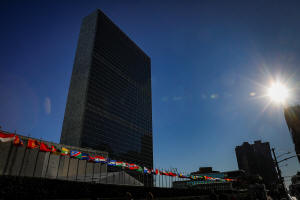|
Members include tech company executives, government officials
from Spain to Saudi Arabia, and academics from countries such as
the U.S., Russia and Japan.
Sony Chief Technology Officer Hiroaki Kitano, OpenAI CTO Mira
Murati and Microsoft Chief Responsible AI Officer Natasha
Crampton are among the executives representing technology
companies.
Representatives also come from six continents with diverse
backgrounds ranging from U.S.-based AI expert Vilas Dhar to
Professor Yi Zeng fom China and Egyptian lawyer Mohamed Farahat.
"The transformative potential of AI for good is difficult even
to grasp," Guterres said in a statement.
"And without entering into a host of doomsday scenarios, it is
already clear that the malicious use of AI could undermine trust
in institutions, weaken social cohesion and threaten democracy
itself," he said.
Since OpenAI launched ChatGPT last year, interest in the new
technology has spread across the world, leading AI researchers
to raise concerns about "risks to society."
While many governments are working to formulate laws to regulate
the spread of AI, researchers and lawmakers have called for
global collaboration.
The UN body will issue preliminary recommendations by the end of
this year and final recommendations by the summer of 2024.
The immediate tasks include building a global scientific
consensus on risks and challenges, and strengthening
international cooperation on AI governance, the UN said.
The first meeting of the body will take place on Oct. 27.
(Reporting by Supantha Mukherjee in Stockholm; Editing by Sharon
Singleton)
[© 2023 Thomson Reuters. All rights
reserved.] Copyright 2022 Reuters. All rights reserved. This material may not be published,
broadcast, rewritten or redistributed.
Thompson Reuters is solely responsible for this content.

|
|




